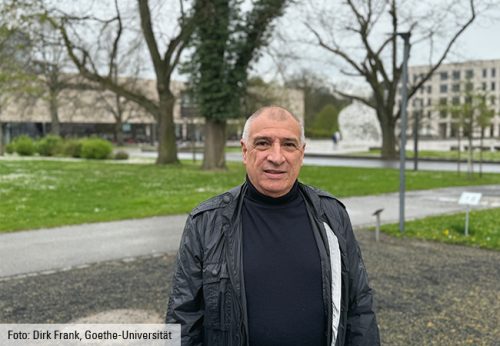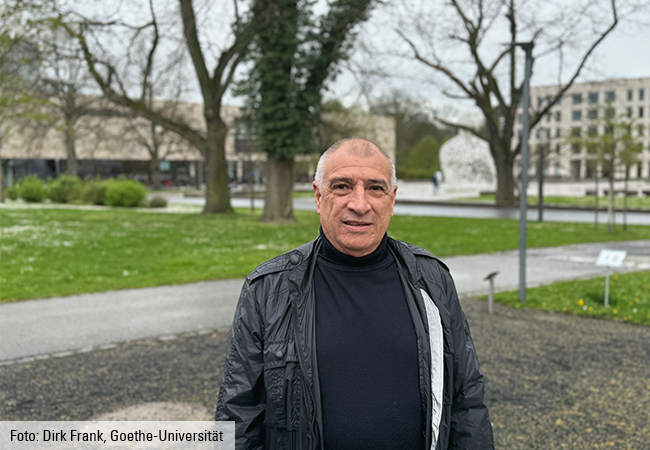A political refugee’s report on life on the old Bockenheim Campus.

Iván Barbaric arrived at Frankfurt Airport on a Lufthansa flight in December 1973 – wearing a short-sleeved shirt. It was freezing cold, he says, adding that he had never seen snow before. Just three months earlier, on September 11, 1973, the government in his home country Chile had been overthrown in a military coup d’état. He had just started studying economics in Valparaíso when his name appeared on the 68th list of persons to be shot. His escape route took him to the capital Santiago, where he met a Dutch diplomat, who drove him through the city in his Citroën 2CV until they arrived in front of the unguarded house of the German ambassador. Barbaric spent a month there until he was finally able to leave Chile. “I didn’t care where I ended up, I knew it was only temporary,” he says. Fifteen years were to pass before he could see his family again, almost as long a period as the dictatorship in Chile.
In Frankfurt, Iván first completed a German course and supported events in solidarity with Latin America and the Communication Center at Goethe University Frankfurt – all the while thinking he would be returning home soon. After some time, he moved into an apartment in Heddernheim with three young refugees. He recalls a poem by Brecht and says: “Without realizing it, you water a plant and hammer a nail into the wall to hang up a picture – that’s how you finally put down roots.” A while later, he enrolled in the Business Administration program, but soon switched to Sociology. The young Chilean’s life at that time played out on Goethe University’s Bockenheim Campus, where he attended seminars and organized events.
“We lived and breathed debate and discussion,” he says in describing the mood in the wake of the 1968 student movement and the influence of the Frankfurt School. Lecturers and students were in close contact even after seminars had ended, with various political and social issues the subject of lively discussions. One of the most important places during this time was the AfE Tower, where Iván also met the woman who would later become his wife. The tower’s fifth floor housed a student living room with decrepit furniture. “It was a place to meet and chat. When it was demolished, a piece of home and of history disappeared as well,” says Iván, visibly moved. At the beginning of the 1980s, he founded a working group with exiled professors and fellow students. The Latin American Institute for Social Research (F.I.L.S) moved into Room 33 of Goethe University Frankfurt’s Students’ Union Building at Jügelstrasse 1.
From there, they planned symposia, exhibitions, concerts, film screenings and readings. The goal of the professors and diplomats invited from Latin America and Germany was to foster reflection on Latin American reality. Today, Iván coordinates the Latin America Week in Frankfurt, held each fall on Westend Campus. Even though he now lives in Frankfurt, he never lost touch with his home country.
Author: Anita Schmidt
Anita Schmidt researched and wrote this article as part of the seminar “Book and Media Practice”. This two-semester continuing education program at Goethe University Frankfurt is aimed at graduates of all faculties interested in cultural, literary and media work, and offers evening courses run by experts from various industries alongside studies or career. www.buchundmedienpraxis.de













